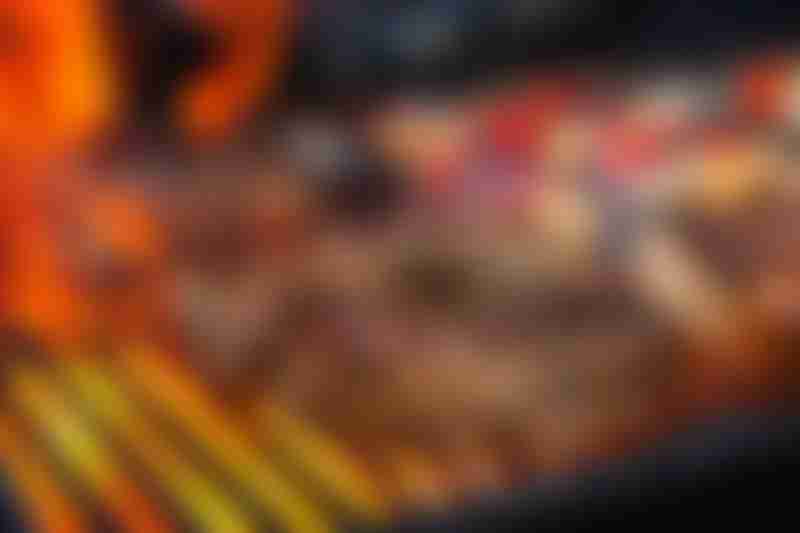Dietary Habits That Increase Your Stomach Cancer Risk

Source: Shutterstock
What is Stomach (Gastric) Cancer?
Stomach cancer, also known as gastric cancer, occurs when abnormal cells within the stomach grow and divide uncontrollably, forming tumors capable of spreading to other parts of the body.
The word “gastric” refers to the stomach, which is why an individual’s diet can play a significant role in the development of gastric cancer. By consuming certain foods, individuals may increase their risk of developing gastric cancer. Therefore, it is crucial to be aware of these foods and take necessary precautions to reduce the risk of gastric cancer. By making informed choices about what you eat and drink, you can take a proactive role in protecting your health and well-being.
What foods and drinks can increase your risk of gastric cancer?
Alcoholic drinks
Alcohol is well-known for its association with diseases of the liver. After all, it is the main organ responsible for breaking down alcohol in our bodies. While it’s no wonder that heavy alcohol use can cause liver cancer and liver cirrhosis, did you know that it can also increase your risk of gastric cancer? In fact, research has found that consuming three or more alcoholic beverages, or more than 1.5 ounces of alcohol, a day can put you at a higher risk of developing all types of gastric cancer.
You may be thinking, how exactly does alcohol cause gastric cancer? To answer this question, we first need to understand how alcohol is broken down.
In our bodies, ethanol, the main component of alcohol, is broken down by different enzymes into a compound called acetaldehyde. Acetaldehyde is further metabolized into acetate, which then escapes the liver and enters the blood. It is eventually broken down into carbon dioxide that is eliminated from the body.
Acetaldehyde, the reactive metabolite of alcohol, is the primary culprit. It is a recognized carcinogen that can promote cancer development through various pathways and mechanisms. This includes interfering with DNA replication and damaging DNA. If you consume too much alcohol, your liver may struggle to process the acetaldehyde fast enough. This can lead to a build-up of acetaldehyde in the body, which can cause irreversible DNA damage and consequently, cancer.
Alcohol itself can also act as a solvent, making it easier for other toxic compounds and carcinogens to penetrate cells in the stomach.
Red and processed meats
Red and processed meats have long been associated with an increased risk of gastric cancer. Red meats, such as beef and lamb, are often exposed to high temperatures on a grill or barbecue. During the cooking process, two types of carcinogens are formed: polycyclic aromatic hydrocarbons (PAHs) and heterocyclic aromatic amines (HCAs).
Processed meats are defined as meats that have been preserved by smoking, salting, curing or adding chemical preservatives. These foods contain high levels of nitrates and nitrites that form N-nitroso compounds (NOCs) when they react with amino acids in the stomach. Processed beef also contains heme iron, which can speed up the formation of NOCs in your body. NOCs have been identified by the IARC as possible carcinogens that can cause oxidative stress and DNA damage. This may lead to uncontrolled cell growth and the development of polyps and tumors.
On top of that, research has shown that heme iron can promote the growth of Helicobacter pylori. H. pylori is a type of gut bacteria that infects the stomach lining. Infection with this bacteria is the strongest known risk factor for gastric cancer. This is because H. pylori can cause severe, chronic inflammation of the stomach (gastritis), making it easier for gastric cells to turn cancerous. Studies have shown that people who are infected with H. pylori are eight times more likely to develop non-cardia gastric cancer. For this reason, the World Health Organization (WHO) has classified it as a Class I (definite) carcinogen.
What can you do to lower your chances of developing gastric cancer?
While these food and drink items are known for their links to gastric cancer, going cold turkey can be extremely difficult and ultimately not feasible in our everyday lives. Instead, consume alcohol and red and processed meats in moderation. This means you can still indulge in the occasional alcoholic beverage or barbequed meat without worrying about the risks involved. It’s also a good idea to include foods that have protective effects against cancer. An example would be fresh fruits and vegetables, which have high levels of vitamins with antioxidant and anticancer activities. It is essential to be mindful of what we consume in order to maintain good health.